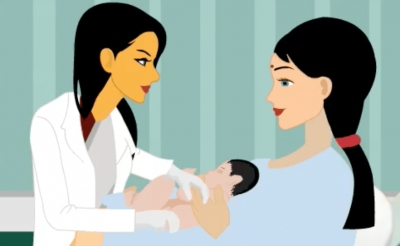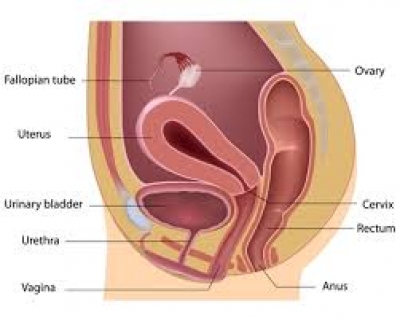after conception and continue to experience it till the end of the first trimester. It typically begins to ease by the 20th week. Hyperemesis gravidarium is a severe form of morning sickness, where the women tend to vomit 3 to 4 times a day, and could also be associated with weight loss of more than 5%, causing severe loss of electrolytes from the body. Hyperemesis gravidarium would need hospitalization.
Why do pregnant women have morning sickness?
Although the reasons for morning sickness is still not completely know, there are several hypotheses about the causes of nausea and vomiting. It is thought that morning sickness is because of the hormonal changes during pregnancy. During pregnancy, levels of estrogen, progesterone, and HCG are increased.
Progesterone and HCG levels are thought to increase nausea and vomiting. Progesterone levels are increased during the first trimester in order to support the embryo. The embryo gets its nutrition from the mother’s blood through the blood vessels of the uterine wall. Progesterone helps to maintain this uterine wall and also relaxes the uterine muscles. Once the placenta is fully functional, by the fourth month, the function of nutrition to the embryo is taken over by the placenta.
The increased levels of progesterone in the first three months of pregnancy, helps in relaxing all smooth muscles, thus it not only helps in relaxing the uterine muscles but it is thought to relax the muscles of the digestive system including the muscles of the esophageal sphincter. This tends to slow down the process of digestion in the mother. The advantage of this slowed digestion is that it helps in complete absorption of nutrients from the mother’s blood to the fetal circulation. But, the slowed digestion can cause delayed transit time through the digestive tract and delayed emptying of the food thus, the food is present in the digestive system longer.
Increased acid production could be one of the reasons for nausea, vomiting, belching increased gas and constipation. Belching could also be due to the relaxed esophageal sphincter, which could cause the reflux of food into the food pipe.
Tips to reduce Nausea and vomiting
- Nausea is also thought to increase when the blood sugar in the mother is low. Hence, it is recommended to eat small meals and at regular intervals in order to maintain adequate blood sugar levels and in turn, this could help in alleviating nausea and the vomiting.
- Eating a biscuit or a snack in between small meals could also help.
- High protein meal could also to some extent help in alleviating nausea and vomiting.
- Try avoiding fatty food ( Fatty food are known to further delay gastric emptying)
- Avoid spicy food.
- Try eating cold foods (It is thought that hot foods carry the aroma of the food, which could increase nausea.)
- Ginger by increasing the motility of the digestive tract is thought to relieve nausea
- Drink water in between meals and also small sips during meals, if it helps.
One of the more interesting theories for nausea is that it is nature’s way of protecting the embryo. The embryo is sensitive to toxins taken by the mother during the first trimester. In order to protect the embryo, from any food which could be toxic. Nausea and vomiting is one way by which the food is rejected by the mother’s gut.
Some women complain of nausea even in their third trimester, this could be because of the growing uterus compressing the digestive organs.
[quix id='8' name='About our Pregnancy Blogs and Videos']






